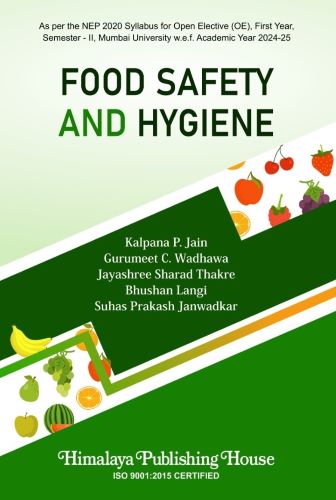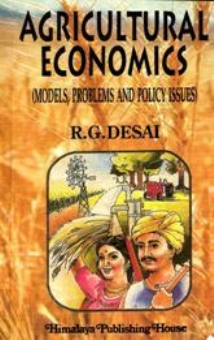Food safety and hygiene have emerged as critical components of modern public health, driven by increasing awareness of the impact of foodborne illnesses and adulteration on human well-being. The National Education Policy (NEP) 2020 emphasises the integration of interdisciplinary knowledge into education, encouraging students to explore practical and socially relevant topics. This book, Introduction to Food Safety and Hygiene, is designed as a comprehensive resource for first year B.Sc. students under the Open Elective (OE) framework of Mumbai University, effective from the Academic Year 2024-25.
The content of this book has been meticulously aligned with the NEP 2020 guidelines and the prescribed syllabus to provide students with foundational knowledge in food safety and hygiene. It highlights the principles of food safety, common food hazards, the significance of personal and environmental hygiene, and the role of food safety management systems (FSMS) in ensuring the quality of food products.
Special attention has been given to the critical issues of food adulteration and contamination, with practical insights into identifying adulterants in common food items like milk, turmeric, and tea. The book also addresses essential topics such as safe food storage, transportation practices, and the perishable supply chain, emphasizing milk and milk products—a vital component of the human diet.
To cater to the evolving needs of the food industry, the book includes an introduction to internationally recognized food safety management systems, such as HACCP and ISO 22000 standards. It provides a detailed overview of their implementation, auditing, and certification processes, ensuring that readers gain a practical understanding of these systems’ relevance and applications.
This book aims to serve as a valuable guide for students, educators, and anyone interested in food safety, bridging the gap between theoretical knowledge and its real-world applications. By fostering awareness and understanding of food safety and hygiene, it aspires to contribute to the creation of a healthier and more informed society.
Contents –
Module I Food Safety
1.1 Introduction to Food Safety and Hygiene
1.2 Food Contamination and Food Adulteration
Module II Food Storage, Transportation and Food Safety Management Systems
2.1 Food Storage and Transportation
2.2 Food Safety Management Systems







